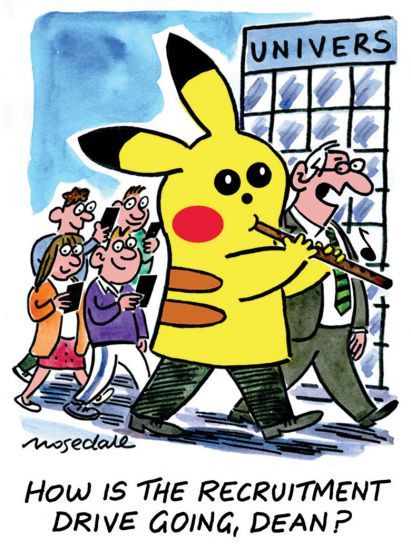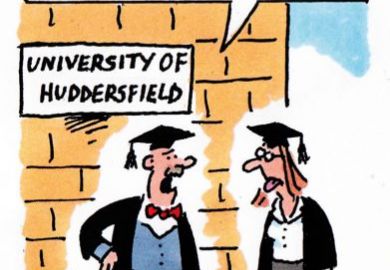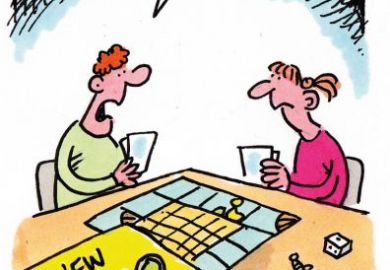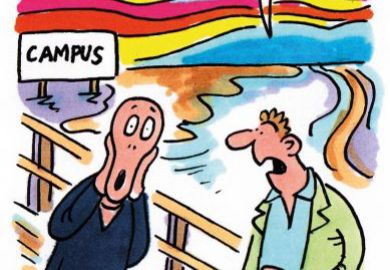
By late July, university campuses are usually noticeably quieter. But things may be different this year, thanks to the mobile game Pokémon Go. BBC News reported on 22 July how hundreds of people are flocking to the University of Reading every day in a bid to capture rare characters in the augmented reality game. Of course, university recruitment teams never miss an opportunity to jump on a bandwagon, with classicist Matthew Nicholls rolled out to explain how there were some “really great connections” between Pokémon Go and some of Reading’s online courses. With reports of robbers using the game to lure victims into isolated locations, a player who finds themselves unwittingly signed up to a Mooc might consider that they have escaped relatively lightly.
We are in only the third week of her premiership, but hopes that Theresa May’s move to 10 Downing Street might lead her to soften her stance on international students appear to have been dashed already. The new prime minister is likely to order the Home Office and the Department for Education to examine “what more can be done to tighten the student visa regime”, The Daily Telegraph reported on 25 July in an article that is sure to have led to a collective head-in-hands moment for university vice-chancellors up and down the country. Options include stopping people coming to take “Mickey Mouse” courses at low-ranking institutions and making sure that foreign graduates return home after finishing their studies, the report says. Many in the sector would doubt whether it is possible to make the rules any tighter before the UK is left with a Mickey Mouse immigration regime – one that most worryingly could extend to cover European Union students in the future if Brexit ends their automatic right to come and study here.
Three universities have been told to improve the way that they deal with students by the Competition and Markets Authority. In its first review of consumer law compliance in UK higher education, the CMA says that too many institutions are still using terms that give them wide discretion to vary tuition fees or change courses, are not clear enough about additional course costs, or prevent students from progressing and graduating if they owe non-academic debts. Three institutions – Bucks New University, the University of Buckingham and Birkbeck, University of London – have agreed “undertakings” with the CMA requiring them to make improvements. But the CMA says that the concerns it had identified “may be occurring more widely”.
The days when applicants received confirmation of their university places by post are long gone, but Ucas hasn’t given up on snail mail just yet. Female A-level students were baffled to receive free gifts of tampons and sanitary towels through the post from the admissions service, the Evening Standard reported on 24 July. Ucas sent the products, distributed under commercial partnerships with Always and Tampax, with the message: “Because the best times call for the best protection.” However, one student may have hit upon the true reason for the mail-out. “Am assuming they’re for soaking up my tears when I'm drowning in debt and tuition fees,” she said on Twitter.
“Christ’s has risen”, read the headline on the University of Cambridge student newspaper Varsity on 23 July. The article covered the latest Tompkins Table, which ranks Cambridge colleges according to the proportion of first-class degrees achieved by their students. Christ’s College recorded one of the most impressive performances, leaping up 11 places to third, with 31.6 per cent of its students getting a first in 2016. First and second place were taken by Trinity College and Pembroke College, respectively. The Tompkins Table has been published every year since 1981, but this could be the final edition of the ranking because the university is set to vote on abolishing the public release of class lists. In light of this, this year’s table might be better seen as less of a Second Coming – and more of a Last Supper.
Register to continue
Why register?
- Registration is free and only takes a moment
- Once registered, you can read 3 articles a month
- Sign up for our newsletter
Subscribe
Or subscribe for unlimited access to:
- Unlimited access to news, views, insights & reviews
- Digital editions
- Digital access to THE’s university and college rankings analysis
Already registered or a current subscriber?



